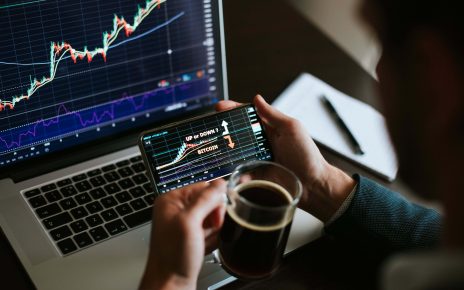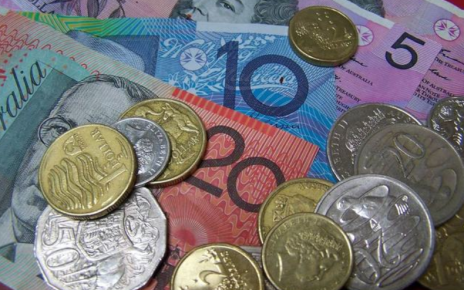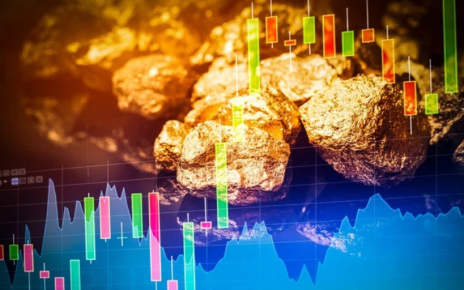A futures contract means the agreement made by two persons or groups to acquire or sell an asset at a specific time in the future later, but the price of the asset is decided by the current market condition. The fact that futures are seen as financial derivatives doesn’t essentially make them more or less precarious than other kinds of monetary instruments.
The main reason for investors or companies use future contracts is to reduce their risk exposures and to minimize any effects fluctuations in price would have on them.
Since futures traders leverage on a higher pull than the fundamental assets in several instances, investors can in reality face margin calls and bigger risks that increase losses. Additionally, futures might be extremely liquid. An example is the case of the U.S. Treasury bond futures contract which is among the highly-traded investment assets worldwide.
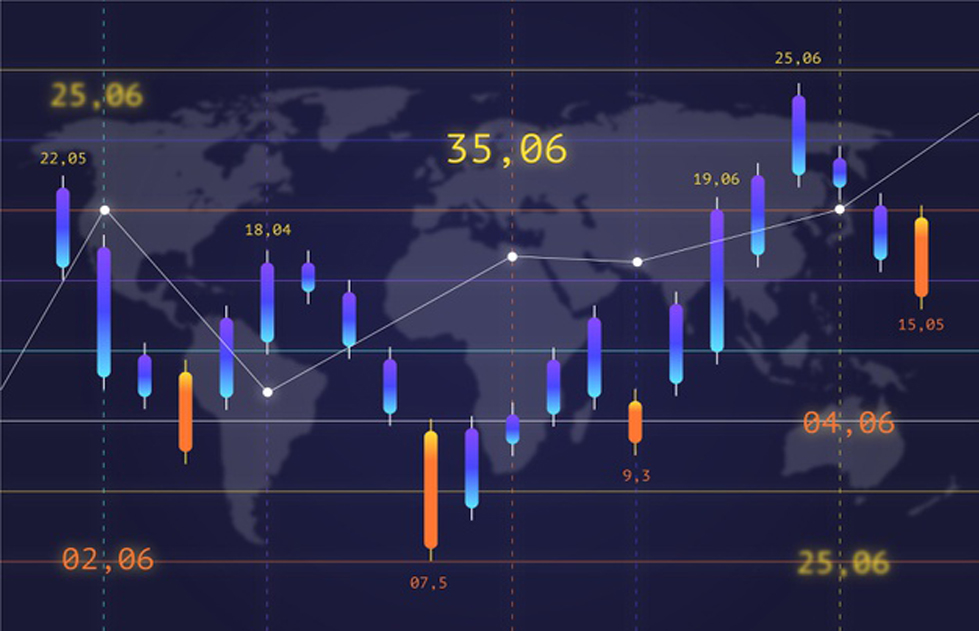
Just like other related financial investments like stocks, a futures contract isn’t steady as it could rise or fall. They as well have a higher risk level than the definite, fixed-income investments similar to equity investments. Since futures have high chances of being marginable, you can access higher leverage compared to the amount you’ll get if you’re investing in an actual stock purchases.
However, you should exercise caution when setting your stops as it could result in margin calls.
However, there are several reasons why we see the futures as a better alternative to bonds, stocks, Forex, and other financial markets. Don’t go away, let’s dive right in:
Why choose futures against forex, stocks and bonds?
1. Futures serves as a hedge for risks
Futures are essential tools for hedging or managing various kinds of risk. Companies that deal with Forex use futures to control the risks involved with foreign exchange rate fluctuations. They also use it to manage the risks on interest rates when investing, to fix an interest rate when anticipating a fall in rates, and finally as a price risk to choose a fixed price for different types of commodities that could as well serve as raw materials including metals, crops, and oil.

As an investor, you can also use futures contracts to limit your risk exposure when trading. An instance is a company or farmer. An investor who has an assortment of investment types in his or her portfolio like bonds, stocks, or other assets can utilize monetary futures to evade a plunge in the market.
The main benefit of utilizing a futures contract is its ability to eliminate the insecurity of the future value of an asset. When it locks in a certain value for your goods now, you wouldn’t have to be worried or anxious about the value of the goods in the future when you are either making a sale or purchasing such goods.
2. Risk management
Futures contracts get their worth from a fundamental asset like a bond, stock index, or a conventional stock. Futures contracts are renowned monetary tools, though they are different in multiple ways from assets like bonds or stocks which are more conventional. Their difference equally means you will have to utilize a different form of risk management.
Nonetheless, the management of risks in future contracts is similar to that of stocks. An example is the exposure future traders face due to the market price risk. However, futures derivatives are different from stocks in the sense that they have expiry dates that involve the release of the fundamental asset. And again, futures allow higher use of leverage on margin account and this can increase both losses and gains depending on the market direction.
3. Efficiency of the fundamental market
Futures and derivatives boost the underlying market efficiency since they immediately reduce the unanticipated costs of purchasing an asset. For instance, it is less expensive and more profitable to go long in the S&P 500 futures than replicating the index by buying all the stocks.
Researchers were also able to discover that when futures were introduced into the market, the entire trading volume of the underlying asset saw an increase. Therefore, futures aid in the reduction of the costs of transactions and help to increase market liquidity. Hence, they are seen as risk management or insurance tool.
4. Price discovery
Price discovery is also a vital role of futures in the monetary markets. The prices of the futures market depend on transparency and constant information supply. Several factors affect an asset’s demand and supply, as well as its spot and future prices. This information kind is speedily immersed and replicated in future prices. Future contracts that are about maturing meet at the spot price, and as a result, the future price of these kinds of contract substitutes for the fundamental asset’s price.
5. Market prospects
Future prices equally point out market prospects. For instance: In a situation where the exploration of oil turns disastrous, the crude oil supply will probably fall and this will cause the future price to rise to even a very high value short-term. But in the case of futures contracts especially those with longer maturities, the price will remain at their previous levels before the crisis occurred. This will be so since after a while which might not be long-term, supply will begin again and the prices will come down to normal level.
As opposed to common belief, future contracts boost liquidity and the spread of information and this can result in larger trading volumes and reduced market volatility. Liquidity and volatility rise and fall in inverse proportions.
6. Profit potential
As an investor, you would have to include margin which is a portion of the entire amount when trading futures. In most cases, this portion could be just 10% of the contract worth. This margin is important collateral the investor will keep in the broker’s care in the eventuality of a loss if the market move is opposite to his intended position. Due to the futures trading leverage, you can have a great loss that is higher than your initial investment. On the other hand, you can realize very huge profits if the market moves in your favor.
Again, the risk of the trader investments is not as a result of his or her assets but due to the nature of future contracts. Hence, if you are trading the future, you must learn how to manage money through the use of practical stop-loss orders to reduce probable losses.
Expert futures traders ensure they do not put themselves at a high margin so that they can retain adequate open, indifferent investment capital to take the fall for losses in their entire equity. Before you trade futures contracts you should have a higher trading skill level and applied management than you should when trading conventional equity.
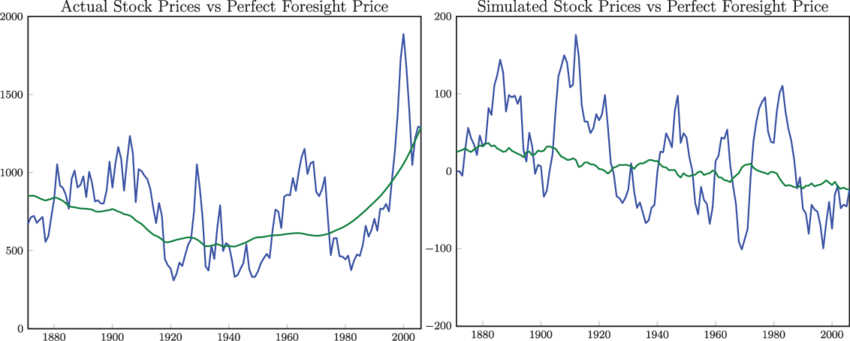
7. Future markets are very liquid
Every day, people trade futures contracts in vast numbers. This, thus, makes futures extremely liquid. With the continuous presence of sellers and buyers in the future markets, market order can easily be fulfilled. Also, this causes the prices not to change significantly, particularly those contracts close to their maturity date. As a result, a big position may be quickly and easily cleared without it affecting the market price.
Aside from its liquidity, several futures markets trade even after conventional market hours. The extended trading of a stock index may run overnight at times while various futures markets trade 24/7.
8. Commissions and execution costs are low
Future trades have very low commissions which are only collected when the investor closes his or position. The entire commission or brokerage is normally as little as 0.5% of the contract worth. Nevertheless, it is reliant on the broker’s service quality as you could only pay $5 for each of the sides for an online broker, while a full-service broker will require you to pay as much as $50 for every trade.
9. Speculators can make money faster in futures market
If as an investor you judge rightly, then you can earn money quickly in futures market since you are trading with an exposure worth 10 times that of normal stocks. Furthermore, the movement of futures market prices is likely quicker than in the spot or cash markets. Be cautious though, just as you can potentially boost your profit, you can also magnify your loss. You should limit your loss by making use of stop-loss orders.
10. Future markets are more efficient and fair

You will find it harder to get an insider leak information when trading the futures market. For instance, no one can correctly predict the next action the Federal Reserve will take on their policy, or in fact, the weather forecast. Future markets deals on markets aggregates that prohibit insider trades, not like single stocks where corporate managers or insiders can disclose information to family or associates to front-run an amalgamation or liquidation. Therefore, futures markets have higher efficiency and provide regular investors with a more reasonable shake.
11. Futures contracts are only paper investments
The real commodity/ stock used in the trade is hardly ever delivered or swapped, apart from when someone is trading to hedge or prevent an increase in price and collect the commodity/stock when it reaches maturity. Futures are normally a paper contract for investors concerned mainly with tentative yields.
This implies that futures give you lesser burden than when holding individual stocks shares which requires consistent tracking and good storage whether electronically or not. Before companies can record the votes of shareholders and disburse dividends, they must first know who possesses their shares but this is not so in futures contracts.
12. Short selling is easier
One can gain little experience on a stock when trading a futures contract since it is lawful and this equally applies to all futures contracts. In contrast, you cannot short sell every stock at all times, since there are various rules with multiple types of market. Besides, some generally forbid short selling stocks.
Conclusion
The advantages of futures are numerous and this attracts every kind of investor to the futures market whether tentative or not. Futures are good for preventing loss and managing risks and due to their complication; you must understand how they function before trading with them. The aim of investing in futures contracts is to lessen the risk for investors, consumers, and producers.
Since you can use it to hedge every position in different asset classes, they are good for risk management. However, you must ensure the kind of market you want to trade in matches the size of your account and your risk tolerance.
Also, ensure your risk percentage suits the market and plan and do not forget that these components are interconnected and you may be in for a big trouble if you’re only focusing on a single factor. Evaluate these factors together side by side so that you can build a flourishing trading plan.



